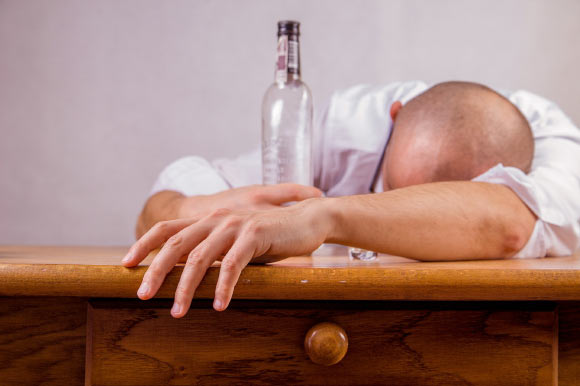According to a study published in the Journal of Abnormal Psychology, heavier alcohol use may delay sleep timing among heavy-drinking young adults; in turn, getting less sleep and waking earlier than usual may increase drinking among heavy-drinking young adults.

Young adults could be at risk of heavy drinking with shortened night of sleep. Image credit: Michal Jarmoluk.
Yale School of Medicine researcher Dr. Lisa Fucito, lead author of the study, and colleagues found that young adults consumed more alcohol following nights of less sleep and had more delayed sleep timing following heavier drinking occasions.
Prior research has demonstrated important sleep-alcohol associations among older adults with a history of chronic alcohol use disorders.
This is the first study to identify a potential bidirectional association between sleep problems and heavy alcohol use in young adults at risk for an alcohol use disorder.
In the study, 42 college students who reported heavy alcohol consumption in the last month monitored their sleep and alcohol use daily for one week.
Participants wore an ambulatory sleep-wake activity monitor and completed daily web-based sleep diaries that included questions about alcohol use.
“Sleeping less and waking earlier, but feeling well rested, predicted greater subsequent alcohol consumption,” Dr. Fucito and co-authors said.
“Heavier drinking predicted going to bed and waking later compared to no or moderate drinking occasions.”
“These preliminary findings support further investigating sleep as an alcohol risk pathway in young adults as well as the potential for improved sleep to reduce this risk,” they said.
_____
L.M. Fucito et al. Reciprocal Variations in Sleep and Drinking Over Time among Heavy-Drinking Young Adults. Journal of Abnormal Psychology, published online November 27, 2017; doi: 10.1037/abn0000312







